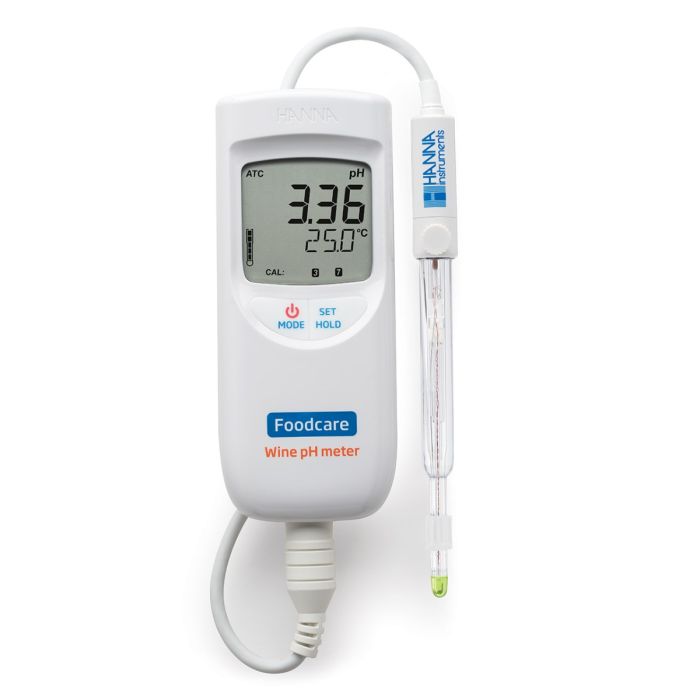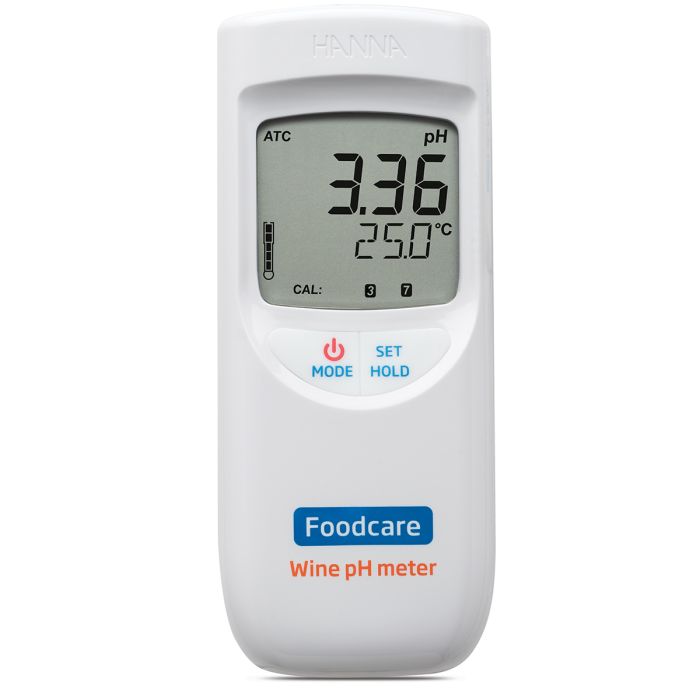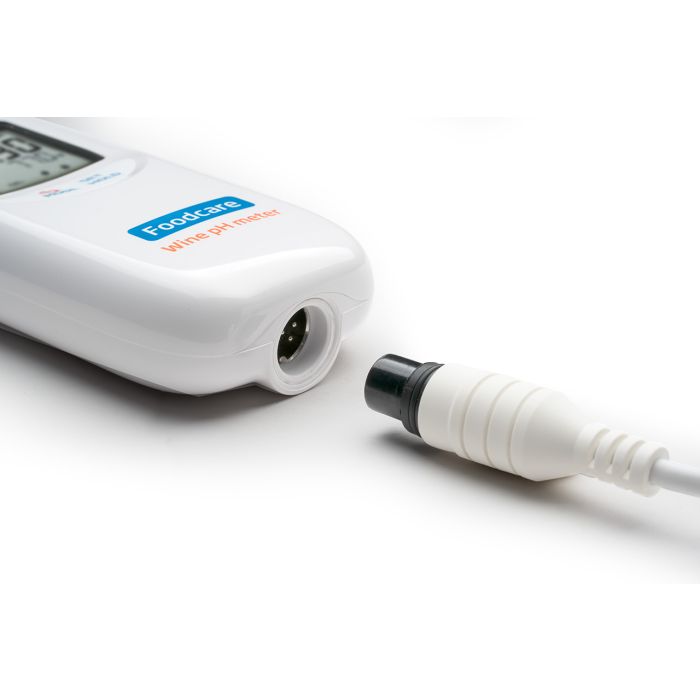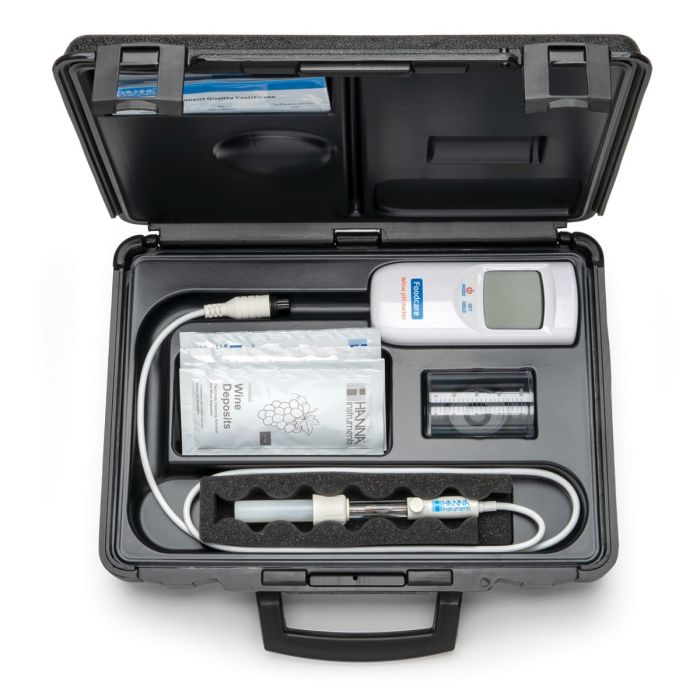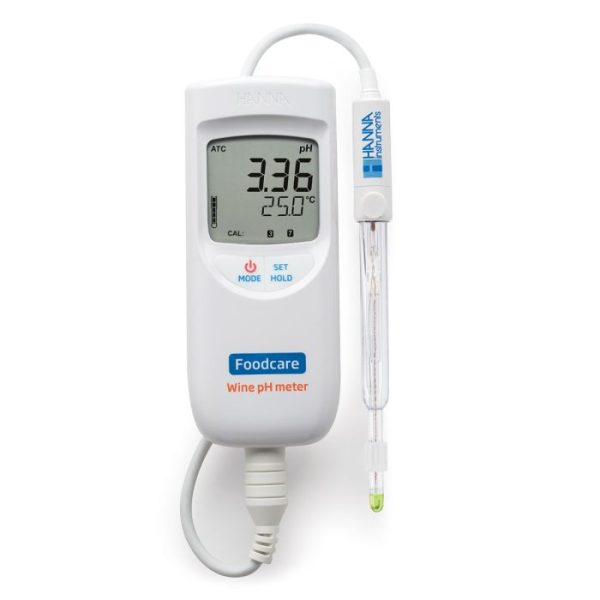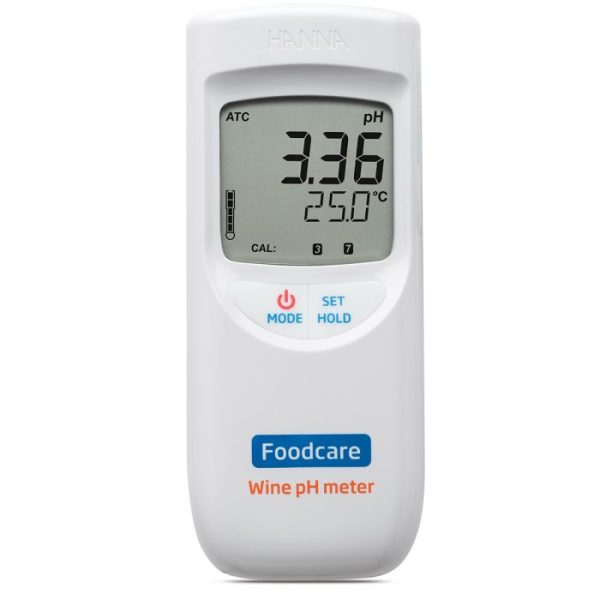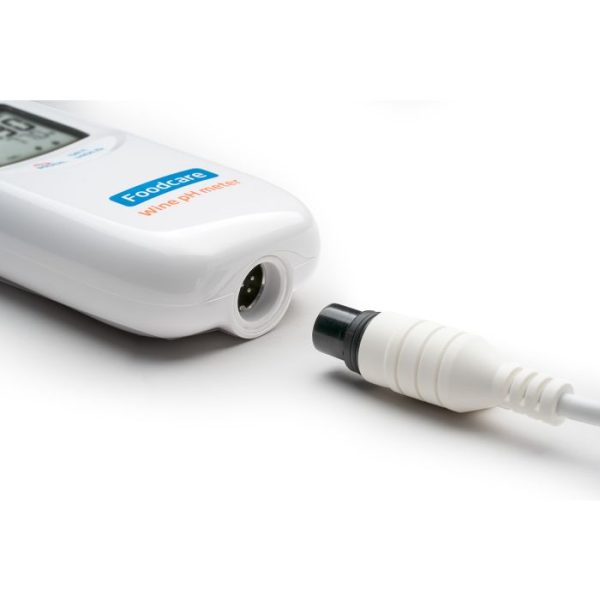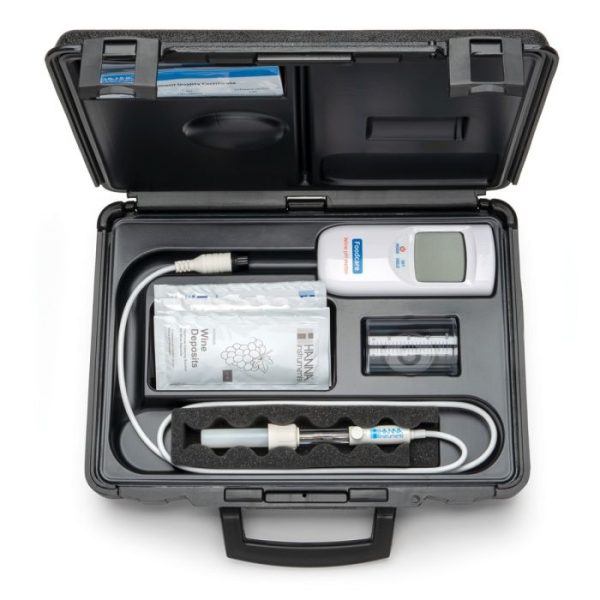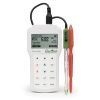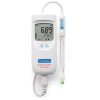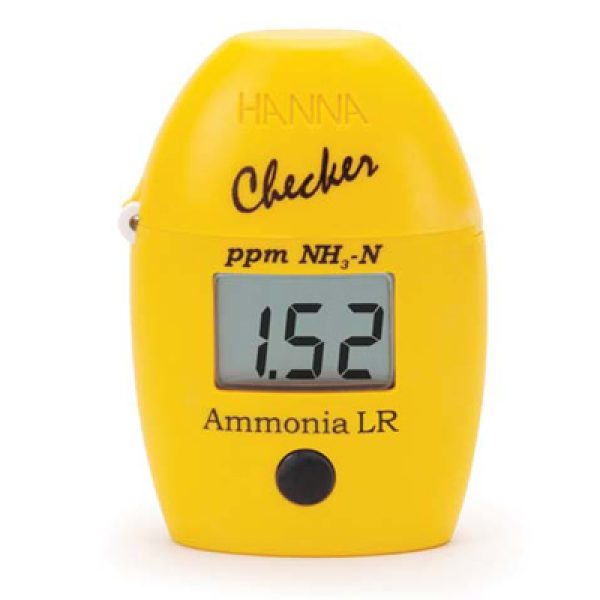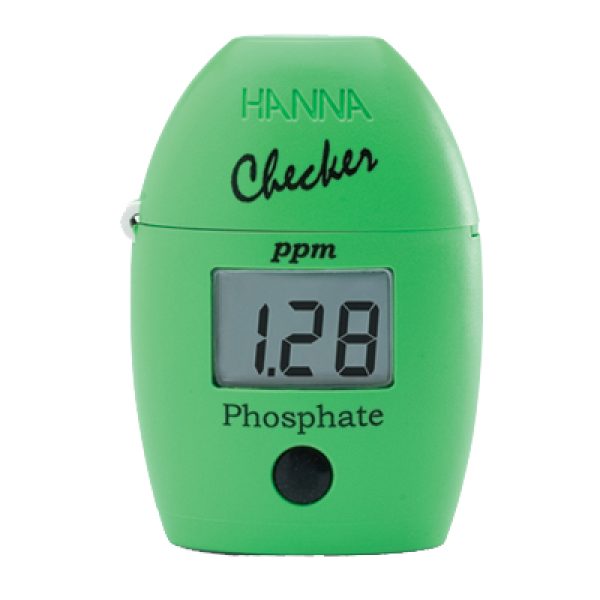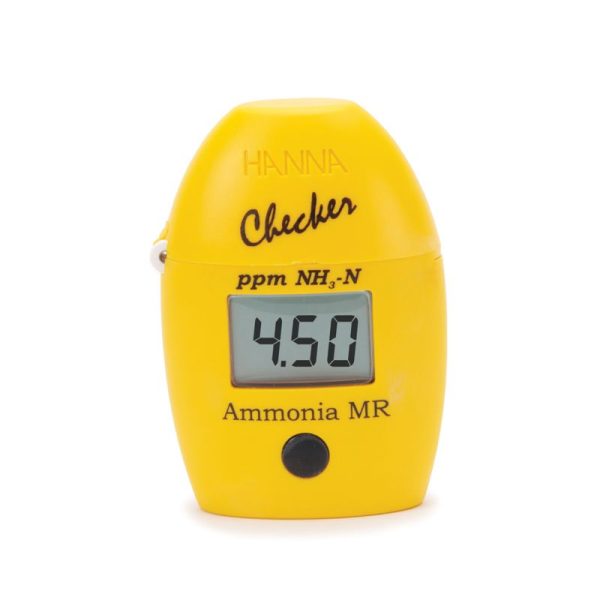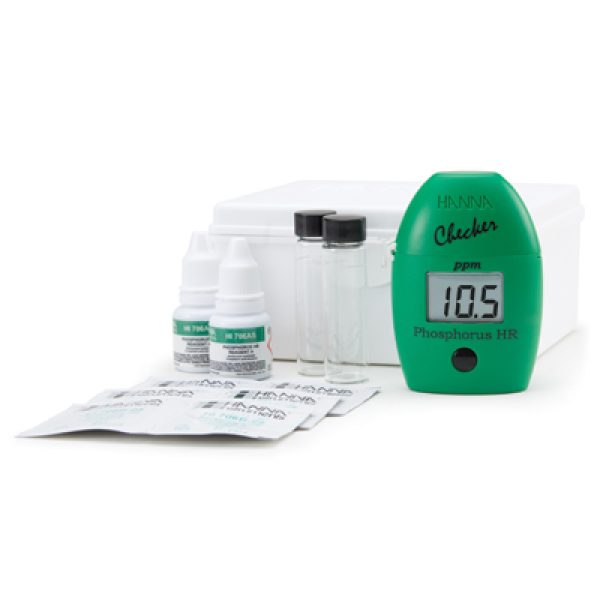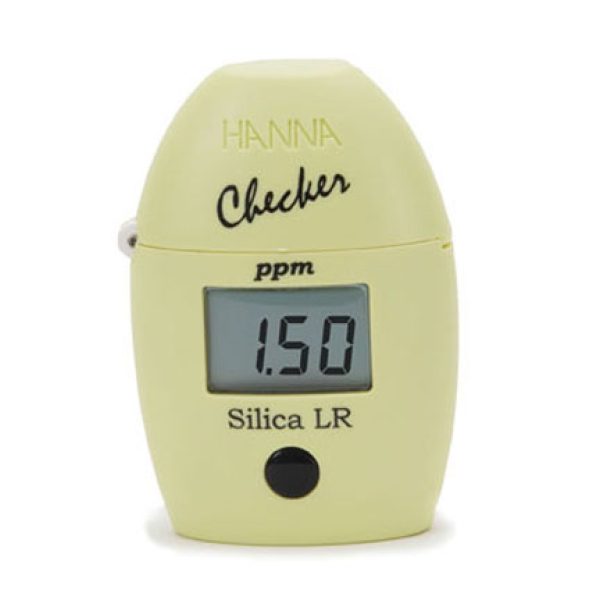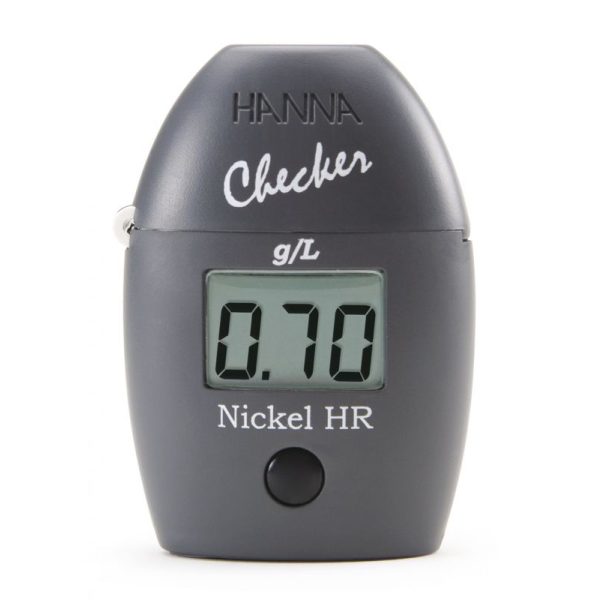No products in the cart.
เครื่องวัดค่า pH ในตัวอย่างไวน์ รุ่น HI99111
฿26,750.00
Out of stock
SKU: HI99111
Category: สินค้าทั้งหมด
The Hanna Instruments HI99111 is a durable, waterproof, and portable pH and temperature meter designed specifically for measurement of juices including grape juice and wine must. Automatic calibration is performed at one or two points with two sets of buffers. The calibration buffers include a pH 3.00 calibration point instead of pH 4.01 in order to better bracket the expected pH value. All calibration and measurement readings are automatically compensated for temperature variations. The split-level LCD displays both pH and temperature readings, along with indicators for reading stability, battery percentage, and calibration instructions. The HI99111 uses the FC10483 glass body, amplified pH electrode that offers numerous features that improve pH testing for a variety of juices with a high solids content.
- pH electrode with CPS Technology
- Automatic one or two-point calibration
- Waterproof

The Importance of pH in Wine Making
The pH of wine is important to determine because it will affect the quality of the final product in terms of taste, color, oxidation, chemical stability and other factors. Generally in winemaking, the higher the pH reading, the lower amount of acidity in the wine. Three important factors in determining the pH of wine include the ratio of malic acid to tartaric acid, the amount of potassium, and the total amount of acid present.
Most wines optimally have a pH between 2.9 and 4.0, with values differing based on the type of wine. Values above pH 4.0 indicate that the wine may spoil quickly and be chemically unstable. Lower pH values allow the wine to stay fresher for a longer period and retain its original color and flavor. High pH wine is more likely to breed bacteria and become unsuitable to drink. For finished white wines, the ideal pH is between pH 3.00 and pH 3.30, while the final pH for red wine is ideally between pH 3.40 and pH 3.50. The optimal pH before the fermentation process is between pH 2.9 and pH 4.0. The pH of wine therefore not only affects the color of wine, but also the oxidation, yeast fermentation, protein stability and bacteria growth and fermentation.
The HI99111 uses the FC10483 amplified pH electrode with glass body. This specialized electrode offers numerous features that improve testing in grape juice and must. An integrated temperature sensor allows for temperature compensated pH measurements without the need for a separate temperature probe. The probe’s spheric sensing tip has a wide surface area for measurement in aqueous solutions.
An integral part of any pH electrode is the reference junction. The reference junction is a part of the electrode that provides for an electrical connection between the reference electrode and the indicating electrode. A standard general-purpose pH electrode will use a single ceramic junction which can pose challenges when measuring samples with a high solids contents such as grape juice or must. The solids can easily clog the junction which will impede the electrical continuity between the reference cell and the sample.
The FC10483 use Clogging Prevention System (CPS) Technology in which a Polytetrafluoroethylene (PTFE) sleeve is used with an open junction design. The PTFE repels solids and is also movable to allow for cleaning.
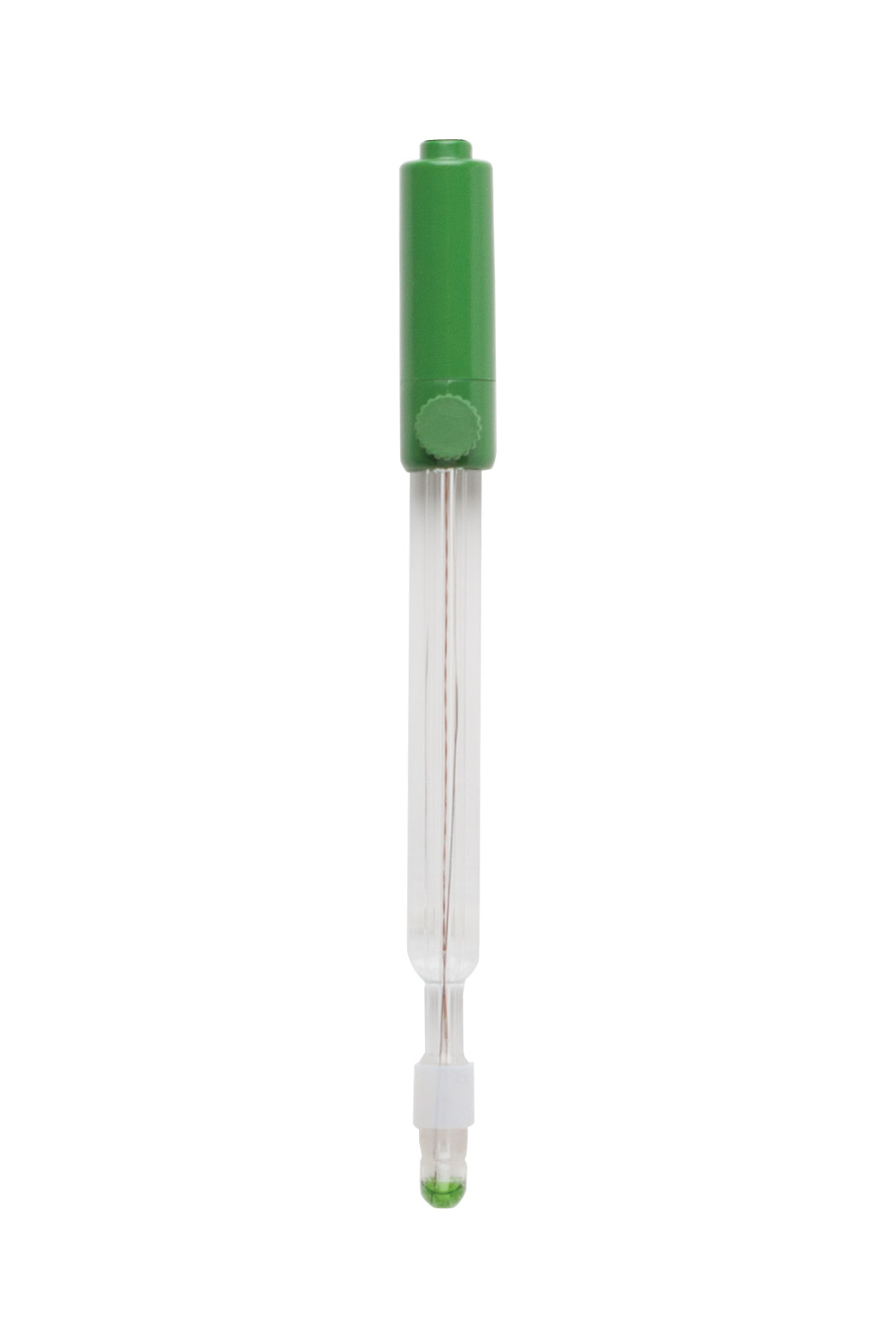
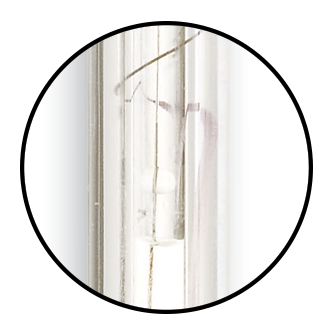
Glass Body
The glass body of the FC10483 is chemically resistant and quick to reach thermal equilibrium, allowing for a faster, more stable response.
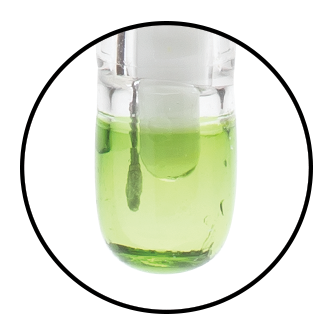
Spherical Glass Tip
The spherical shaped tip design allows for a wide area of contact with the measured sample. This permits a faster electrode response with a higher degree of stability.
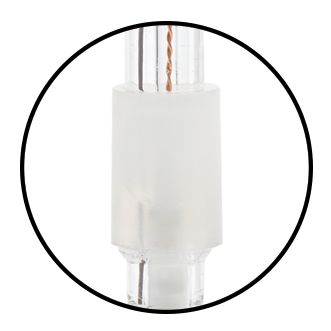
CPS Sleeve Junction
Clogging Prevention System (CPS™) technology is an innovation for the improvement of pH measurements in samples that have a high solids content. Conventional pH electrodes use ceramic junctions that can clog quickly when used in samples that have a high solids content such as wine must or juice. When the junction is clogged, the electrode does not function. The CPS technology utilizes the porousness of ground glass coupled with a PTFE sleeve to prevent clogging of the junction. The ground glass allows proper flow of the liquid, while the PTFE sleeve repels solids. As a result, pH electrodes with CPS technology take up to 20 times longer to be fouled as compared to conventional electrodes.
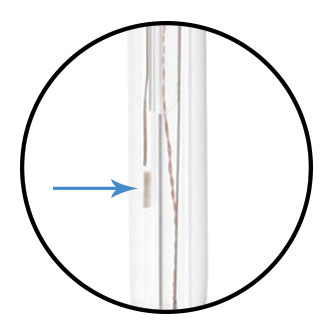
Double Junction Reference
A double junction electrode has an internal compartment surrounding the reference wire. Silver ions are present in the electrolyte of the internal compartment, which houses the Ag/AgCl reference wire; the electrolyte outside this compartment is silver free. This design prevents silver ions from reacting with any sulfides present in the sample that can cause the silver to precipitate and clog the junction. Clogging of the junction will result in drifty and erratic readings.
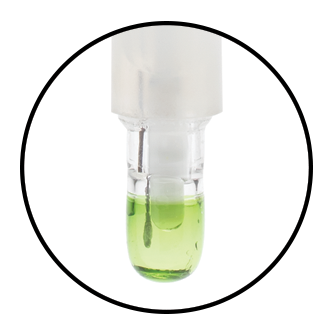
Built-In temperature sensor
Error in calibration and measurement are eliminated with the Automatic Temperature Compensation provided by the integrated temperature sensor.
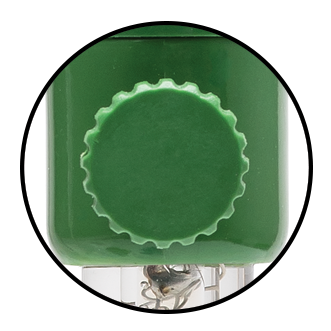
Refilable
The FC10483 is a refillable probe. Since it is a double junction pH electrode the fill solution is the HI7082 3.5M KCl. This solution does not contain any silver as with single junction electrode.
Features at-a-glance
- Waterproof – The HI99111 is a waterproof meter rated IP67 for immersion in up to one meter of water for 30 minutes.
- Automatic Calibration – One or two-point calibration is automatic to two selectable buffer sets.
- Automatic Temperature Compensation – An integrated temperature sensor allows for automatic temperature compensation of pH measurements.
- Multi-Level LCD Display – The split-level LCD displays both pH and temperature readings, along with indicators for reading stability, battery percentage, and calibration instructions.
- On-Screen Tutorial – Clear tutorial messages and directions are available on-screen to quickly and easily guide users through setup and calibration.
- Battery Error Prevention System – The meter will automatically shut off if there isn’t enough power to obtain an accurate measurement.
- Battery Life Indicator – The battery percent level is displayed at start up alerting the user to the remaining battery power that is available.
Manual : Download
Specification :
| SKU | HI99111 |
| Product Name | Portable Wine Must and Grape Juice pH Meter – HI99111 |
| Quote Required | Yes |
| pH Range | -2.00 to 16.00 pH; -2.0 to 16.0 pH |
| pH Resolution | 0.01 pH; 0.1 pH |
| pH Accuracy | ±0.02 pH; ±0.1 pH |
| pH Calibration | automatic, at one or two points with two sets of buffers (standard 3.00, 7.01,10.01 or NIST 3.00, 6.86, 9.18) |
| pH Temperature Compensation | automatic from -5.0 to 105.0ºC (23 to 221ºF) |
| pH CAL Check (electrode diagnostics) | probe condition indicator |
| mV Range | ±825 mV (pH-mV) |
| mV Resolution | 1 mV (pH-mV) |
| mV Accuracy | ±1 mV (pH-mV) |
| Temperature Range | -5.0 to 105.0°C / 23.0 to 221.0°F |
| Temperature Resolution | 0.1°C / 0.1°F |
| Temperature Accuracy | ±0.5°C (up to 60°C); ±1.0°C (outside) / ±1°F (up to 140°F); ±2.0°F (outside) |
| pH Electrode | FC10483 pre-amplified pH probe with internal temperature sensor, quick connect DIN connector and 1 m (3.3’) cable (included) |
| Automatic Shut-Off | user selectable |
| Battery Type/Life | 1.5V (3) AAA / approximately 1400 hours of continuous use |
| IP Protection | IP67 |
| Environment | 0 to 50°C (32 to 122°F); RH max 100% |
| Dimensions | 154 x 63 x 30 mm (6.1 x 2.5 x 1.2”) |
| Weight | 195 g (6.91 oz.) |
| Ordering Information | HI99111 is supplied with FC10483 pH/temperature probe, pH 3.00 and pH7.01 calibration buffer sachets, HI700635 cleaning solution for wine deposits sachet (1), HI700636 cleaning solution for wine stains sachet (1), 100 mL beaker, batteries, instruction manual, calibration certificates for meter and probe, and rugged carrying case. |
| Weight | 0.2 kg |
|---|---|
| Dimensions | 15.4 × 3 × 6.3 cm |
Related products
สินค้าทั้งหมด
฿3,103.00
Range 0:00 to 3:00 ppm NH3-N | Nessler Method | 0.01ppm resolution
สินค้าทั้งหมด
฿3,103.00
Range 0:00 to 2:50 ppm | ascorbic acid method | Resolution 0.01ppm
สินค้าทั้งหมด
฿3,103.00
Range 0.00 - 9.99 ppm NH3-N | Nessler Method | 0.01ppm resolution
สินค้าทั้งหมด
฿3,105.14
Range 0.0 - 15 ppm | Molybdenum Blue Method | 0.1ppm resolution
สินค้าทั้งหมด
฿3,103.00
Range 0:00 to 2:00 ppm | ASTM D859 Method | 0.01ppm resolution
สินค้าทั้งหมด
฿3,103.00
Range 0:00 to 7:00 g / L | Photometric Method | Resolution 0.01g / L
